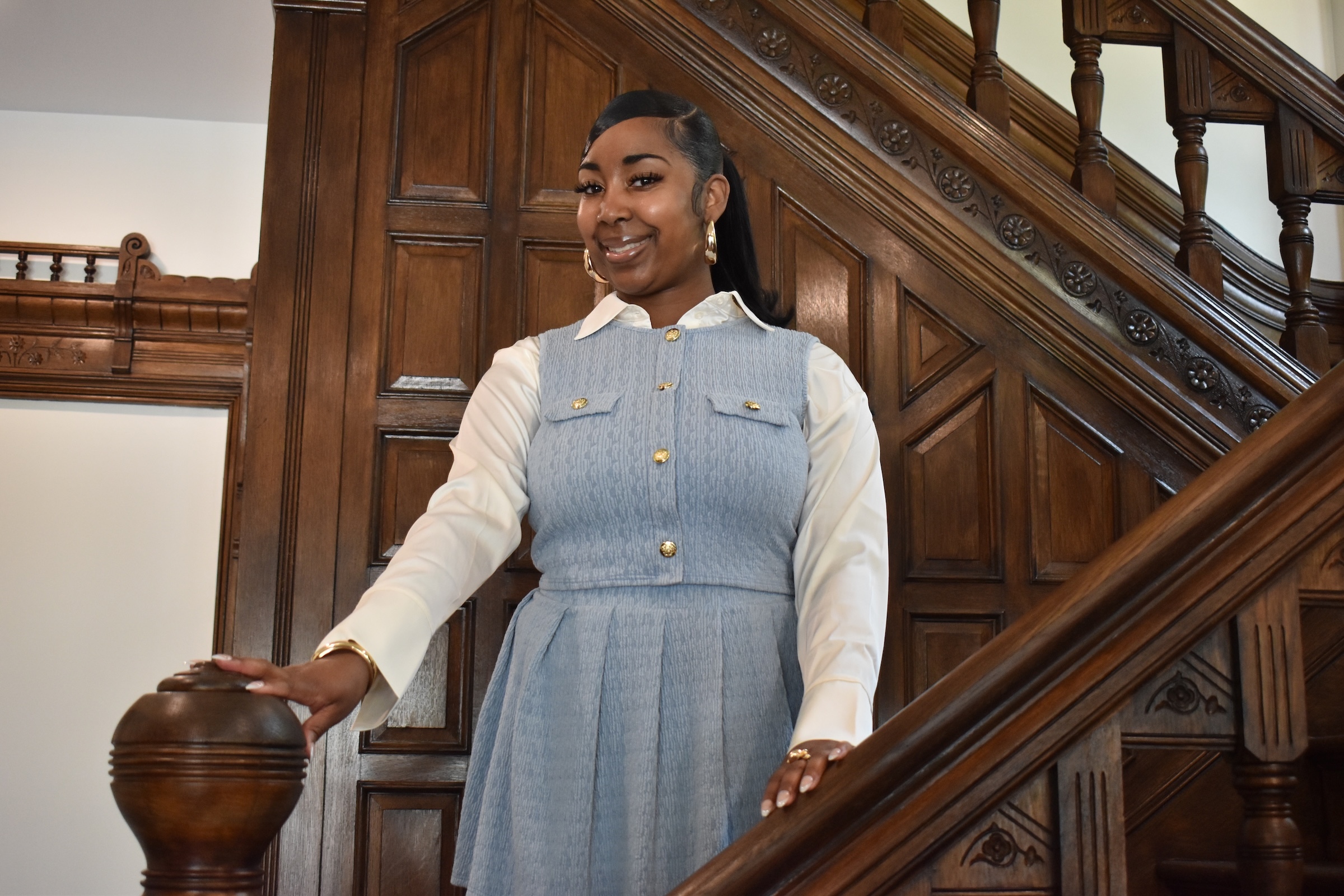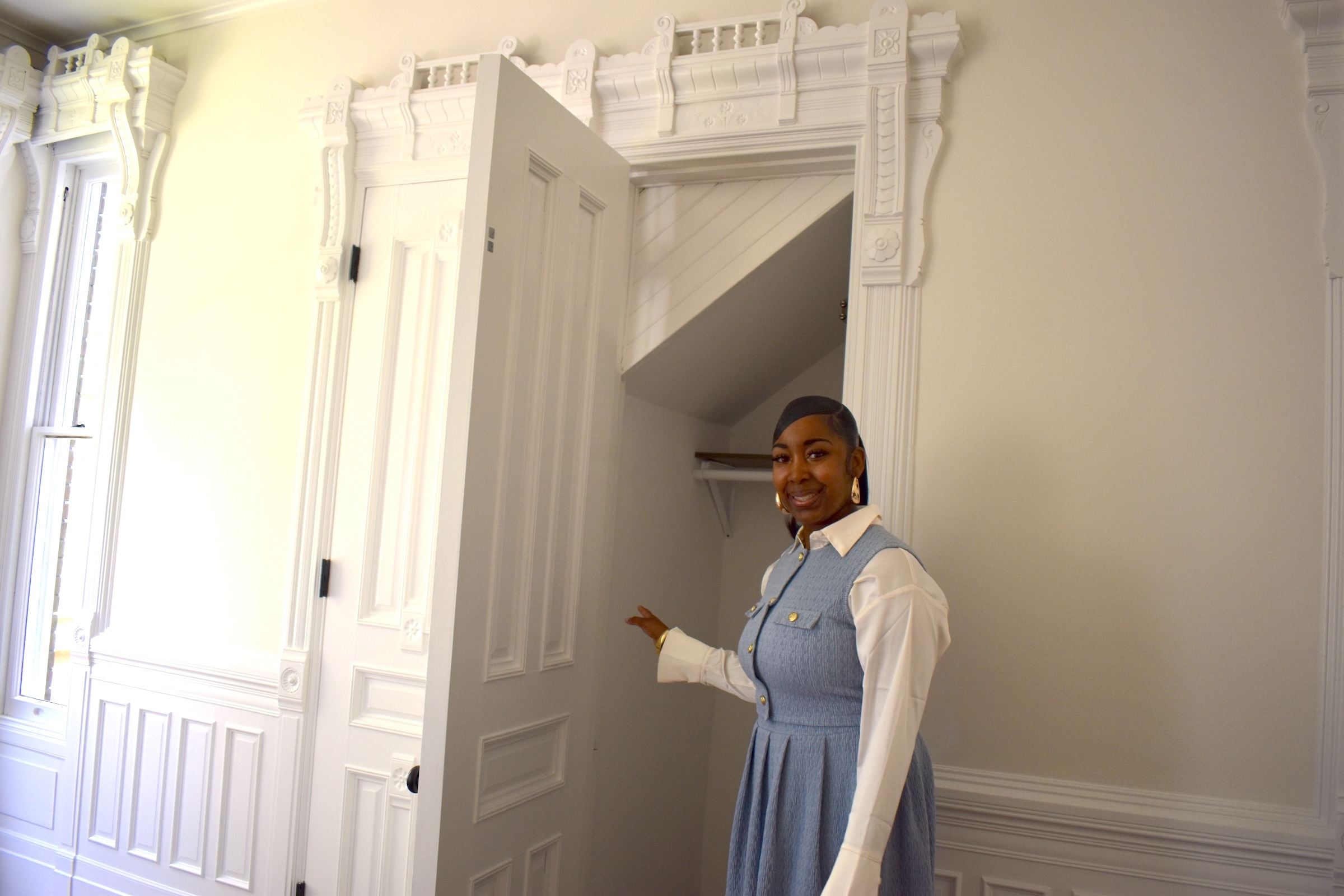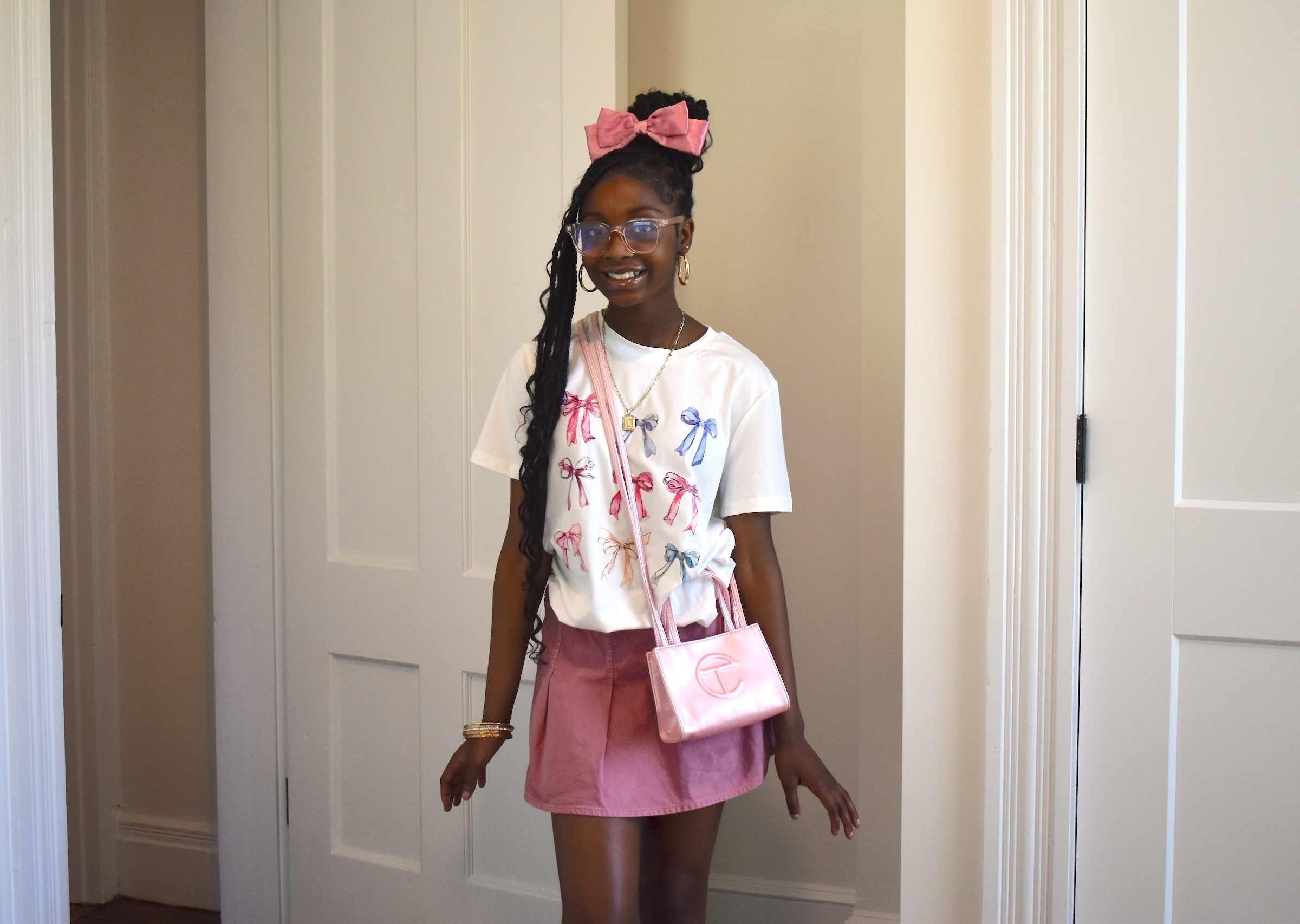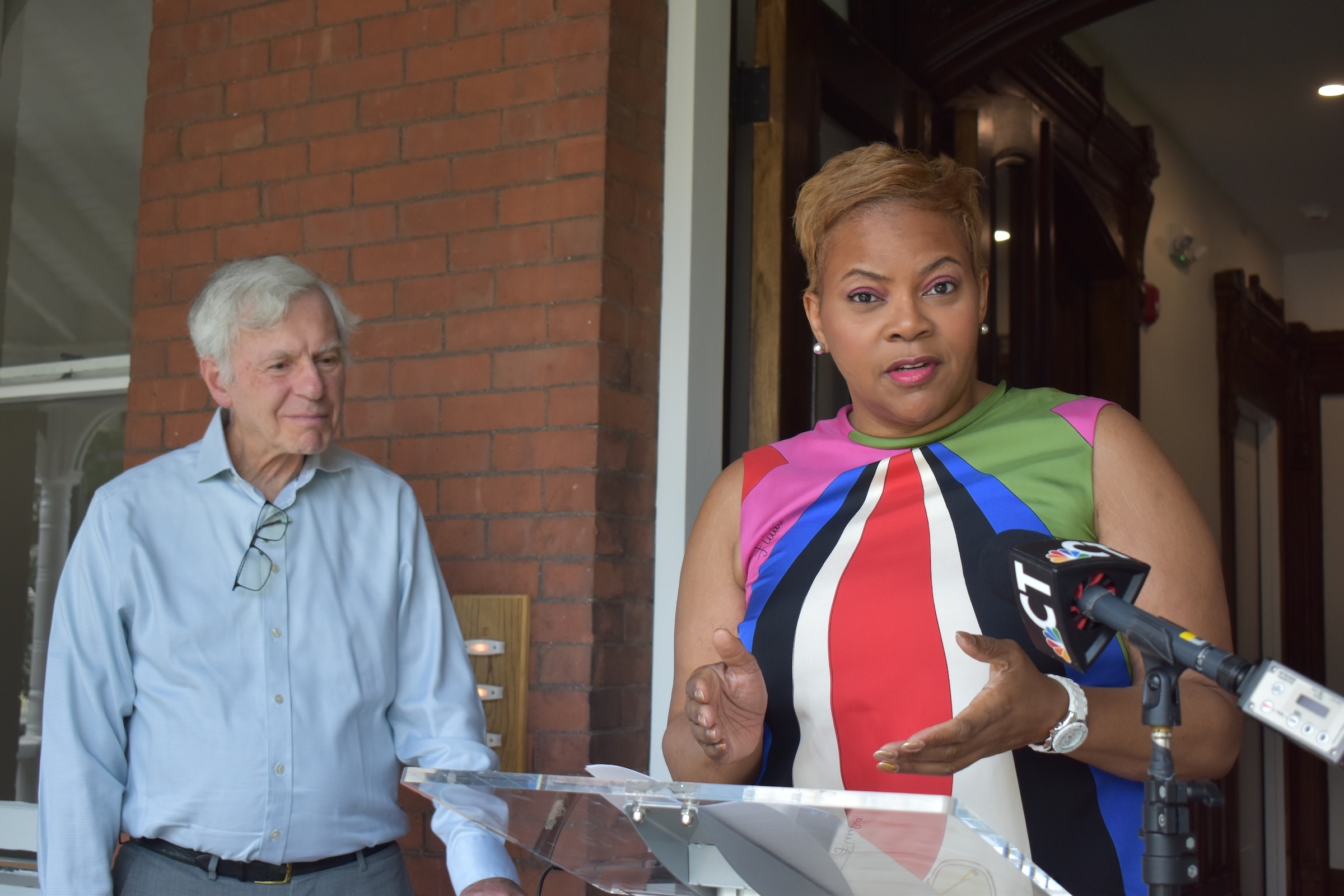
Laura Glesby photos
NHS client Ashley Bailey meets NHS alum Leslie Radcliffe, her future neighbor.

Rosa DeLauro: Now is the time to "stand up and speak up."
Ashley Bailey doesn’t remember living at 470 Howard Ave., where her father and grandfather raised her briefly as a baby.
But her 13-year-old daughter will remember painting her bedroom walls teal inside that same house — now that Bailey is on track to purchase it as a first-time homeowner, with the help of state and federal programs that are in jeopardy under President Donald Trump.
She and her daughter, London, convened for a press conference at the house on Friday afternoon with U.S. Rep. Rosa DeLauro, Neighborhood Housing Services of New Haven staff, and state housing advisor Shanté Hanks to call on Congress to avoid erecting more barriers to homeownership.
Trump’s proposed 2026 budget would cut $32.9 billion from the federal Department of Housing and Urban Development (HUD), according to Housing Wire. The budget would endanger funding for organizations like Neighborhood Housing Services, including by underfunding NeighborWorks America and completely eliminating the HOME Investment Partnership and Community Develop Block Grant programs.
Those grants, according to Neighborhood Housing Services (NHS) Director Jim Paley, were critical in funding the organization’s rehabilitation of 470 Howard Ave. and its ability to sell the home at a subsidized rate to Bailey.
Also at stake, DeLauro said, are the costs of borrowing money to buy a home.
According to the Congressional Budget Office, Trump’s “Big Beautiful Bill” (as passed by the House) would add $3.3 trillion to the national debt — which “drives up the interest rates for everyone else” and “makes borrowing to buy a house more expensive,” DeLauro said.
A Yale Budget Lab model found that as a result, for a median-priced home, annual mortgage interest costs could increase by about $1,060 in 2030 and about $5,800 by 2050.
“These higher debt levels are going to severely limit whether people qualify for mortgages,” added NHS Managing Director Bridgette Russell.
Between those interest impacts and HUD funding cuts, homeownership could become more and more out of reach for many Americans.
“I will fight,” promised DeLauro, for lower debt and more housing funding as the Senate takes on the legislation — noting that homeownership opportunities affect households across the political spectrum. Now is the time, she said, to “stand up and speak up” about the stakes.
Homeownership is “a source of comfort, pride, and success” for a family — while building a “foundation of safe and stable neighborhoods.”
In an alternate universe in which those bills passed before Bailey could buy her home, she might have been impacted as well.
But with the help of Neighborhood Housing Services, she’s reached a mortgage agreement and is in the process of buying the home for $325,000. She plans to live on the first floor with her daughter, while renting out the top two floors as two three-bedroom apartments.
“Now I have something I can pass down to my daughter,” said Bailey, a lifelong New Havener who works as a retail specialist at the Yale Schwarzman Center.
NHS acquired the home from another housing nonprofit in 2022 — and then spent years restoring the historic Queen Anne-style home to a more habitable state, preserving artistic wall accents, ornate wood and tile floors, and a regal wooden staircase. The rehabilitation was made possible by some of the federal grants now in jeopardy, including $80,000 from the CDBG grant as well as part of a $440,000 award from the HOME program. NHS declined to say how much the project cost in total.
Meanwhile, Bailey spent years working with Russell on a financial plan, building up her credit and reducing debt. “Their support has been invaluable,” Bailey said of NHS. She found assistance from the state’s Live Where You Work and Time To Own programs, CHFA, the Greater New Haven NAACP, and more, cobbling together about $93,000 in assistance to purchase the house.
NHS has helped about 300 families buy homes in New Haven over the course of more than four decades, according to Paley.
One of those first-time homeowners will be Bailey’s future neighbor, Truman Street resident Leslie Radcliffe, who stopped by to introduce herself to Bailey on Friday.
“Thirty years ago, I went through this same process,” she said. “I’m in this neighborhood.” She gave Bailey her phone number and told her to call with any questions or concerns she encounters upon moving in.
“As a homeowner, you become a stakeholder,” Radcliffe later commented, expressing hope that each new homeowner in the neighborhood will become another long-term voice invested in improving community life.
Walking through her future home, Bailey said she’s excited to have a backyard, since she and her daughter currently live in an apartment complex without any outdoor space. She especially loves the “attention to detail” across the home — the scalloped window borders, the colorful tiles by the old fireplaces, the floral flourishes carved into the staircase.
Her daughter, London, is excited to peer out the window of her (hopefully teal) bedroom overlooking the backyard, and see a lawn of fresh grass she can call her own.
“I’m excited to decorate,” she said.

Ashley Bailey doesn't know when she'll move in, but she hopes it'll be soon.

Exploring ample storage space in the house.

13-year-old London in her future room.

Jim Paley and Shanté Hanks.